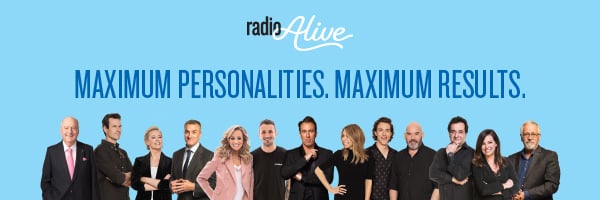Radio Tomorrow with James Cridland
Typically, when I speak at conferences, I start by pointing out how popular radio is. 9 out of 10 of us listen to the radio in any given week – whether you live in Boston Massachusetts, Boston England, or Boston in South Australia. (Probably. The last one doesn’t have radio statistics, but Brisbane’s 9 out of 10 too.)
Podcasting? At best, 2 out of 10; and lower in many countries.
Given the amount of change to the media landscape, why does radio do so well? I think a lot of it is due to habit. We’ve always listened to radio. It’s a habit to wake up to the clock radio, or to turn the radio on in the kitchen. It’s habit – and automatic – that the radio goes on in the car on the way to work.
Radio cottoned on to this in the 1960s and 1970s, when it stopped carrying individual shows like comedy, quizzes, farming programs and special hours for housewives. Radio changed to be a consistent offer, and a consistent listen. You’d always hear the same type of music, and the same type of programming, whenever you tuned in. The same people doing the same timeslots, week after week, month after month.
This is why attempts to unseat radio have been difficult: because you’re trying to break a habit. And, like coffee-drinking, cigarette smoking or a decent beer, habits are hard to dislodge.
Last week came news that the New York Times’s podcast, The Daily, is now doing two million downloads a day. Sure, it’s a far cry from NPR’s Morning Edition, which has 14.9 million people listening each week – but something to consider is that The Daily is succeeding in breaking peoples’ habits. There is a certain amount of the US population that, instead of the radio, now habitually listens to Michael Barbaro’s weird intonation every day. Their habits are being changed by highly produced daily podcasts that are long enough for their commute.
Habit, too, may be explaining why radio has a problem in many countries with younger audiences. They may still listen in roughly the numbers they did before: but they listen for far less time. And if you’ve heard people saying that audiences “grow into” radio listening, I’m here to tell you that, no, that’s not true. All the statistics I’ve seen show that younger audiences don’t magically change their habits later in life – and as they grow up, they continue listening to less radio than their parents.
Habit has been radio’s friend for the last fifty years – enabling it to successfully win the battle against the Walkman, MTV, and other new technologies. But habit could be radio’s enemy in the years to come, as habit-forming content appears elsewhere. Through addictively-great programming and innovative distribution, it’s up to us to keep the radio habit alive.
About The Author
James Cridland, the radio futurologist, is a conference speaker, writer and consultant. He runs the media information website media.info and helps organise the yearly Next Radio conference. He also publishes podnews.net, a daily briefing on podcasting and on-demand, and writes a weekly international radio trends newsletter, at james.crid.land.
Contact James at [email protected] or @jamescridland


